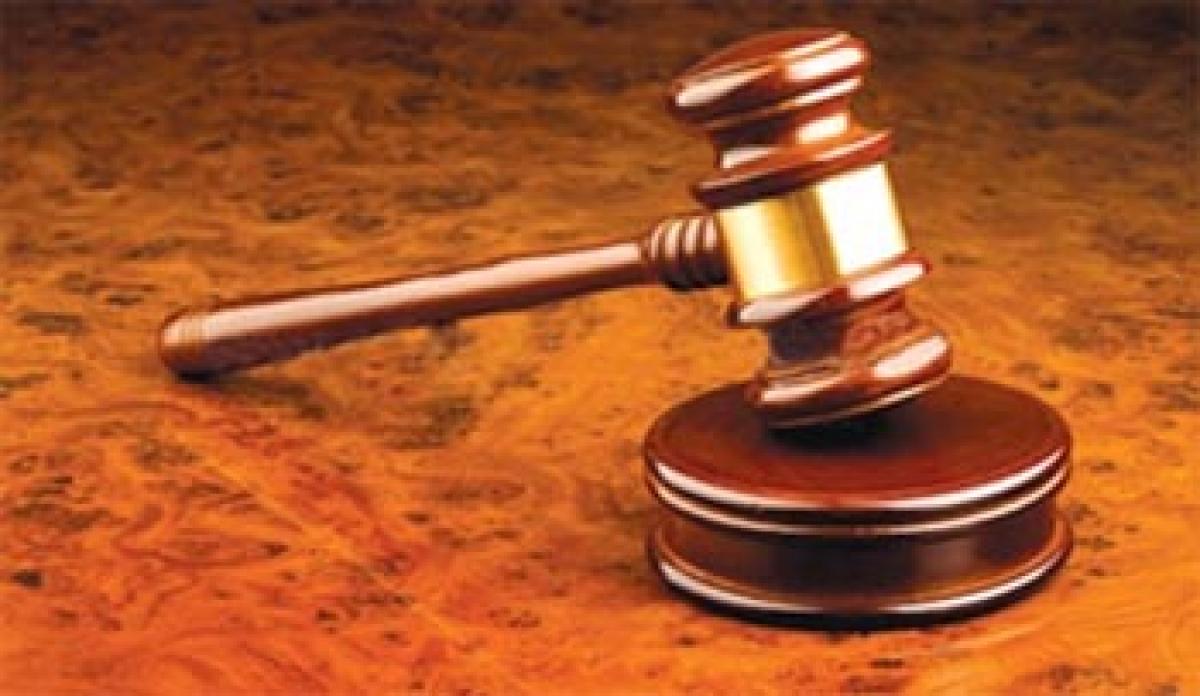Live
- Chanchalguda Jail Officials Say They Haven't Received Bail Papers Yet, Allu Arjun May Stay in Jail Tonight
- BJP leaders present evidence of illegal voters in Delhi, urge EC for swift action
- Exams will not be cancelled: BPSC chairman
- Nagesh Trophy: Karnataka, T.N win in Group A; Bihar, Rajasthan triumph in Group B
- YS Jagan condemns the arrest of Allu Arjun
- Economic and digital corridors to maritime connectivity, India and Italy building vision for future, says Italian Ambassador
- SMAT 2024: Patidar's heroics guide Madhya Pradesh to final after 13 years
- CCPA issues notices to 17 entities for violating direct selling rules
- Mamata expresses satisfaction over speedy conviction in minor girl rape-murder case
- Transparent Survey Process for Indiramma Housing Scheme Directed by District Collector
Just In

After first abortive move to convince the country’s judiciary for electronically recording the court proceedings the Central government now has initiated the same once again with a rider that to start with the proposal if accepted by the apex court would be initially implemented in the lower courts.
RECORDING COURT PROCEEDINGS
After first abortive move to convince the country’s judiciary for electronically recording the court proceedings the Central government now has initiated the same once again with a rider that to start with the proposal if accepted by the apex court would be initially implemented in the lower courts.
What might have prompted the government to take up this initiative is the fact that in some other countries recording the court proceedings is a normal practice. As such, there is nothing wrong if the proceedings are recorded with the help of audio-video instruments to ensure greater transparency.
However, having said so, one needs to first pay attention to the prevailing situation in our police stations. The genesis of a criminal case is the interaction of the victims and accused with the police. It is only after such interaction that the First Information Report (FIR) is registered which is followed by the police investigation.
After this, either the charge-sheet or final report praying for the closure of the case is filed in the court. The courts are generally dealing with civil or criminal matters. In civil matters private parties and/or public authorities are arrayed either as the plaintiffs or as the defendants. But in so far as the criminal prosecution is concerned the police plays most important role.
The role of the police, right from the level of constable to the highest authority is very important. In fact, the lower police authorities play crucial role in ascertaining the genuineness of the complaint, collecting relevant information and sending the necessary components to the forensic laboratory, interrogation of the suspects, accused and other witnesses and finally preparing the closure report or the charge-sheet.
Therefore, besides thorough training in the rules and regulations, Criminal Procedure Code , Indian Penal Code and other relevant laws what is more important for the police personnel, particularly the lower rung people is to have honesty, integrity and respect for the rights of the complainants and the accused alike. In this context, much needs to be done.
Despite several judicial sermons and indictments the police indifference or brutality is the order of the day. In the USA, police cannot seize the mobile phone of the accused while the situation at home is such a pathetic. Forget about seizing the mobile phone from the accused, even on mere suspicion a man is made naked and beaten black and blue.
The police lock-ups in most of the police stations have been reduced to the torture chambers. The human rights are mostly observed in breach than in due compliance. Hence, the Central government would do good to take necessary steps to refurbish the image of our police force.
To start with let there be installation of CCTV cameras in all police stations and declaring interrogation of a suspect or the accused at any other place than in the police station as illegal except in case of women about whom there are already provisions made in the Criminal Procedure Code.
The electronic recording of the court proceedings can wait but the top most priority must be given to the streamlining of police procedures.
Second complaint maintainable under consumer protection act : sc
In a recent judgment delivered on January 27 in Civil Appeal No.557 of 2016 the Supreme Court has held that the second complaint to the District Forum under the Consumer Protection Act, 1986 is maintainable when the first complaint was dismissed for default or non-prosecution.
Earlier, in Indian Machinery Company Vs. Ansal Housing & Construction Ltd, the National Commission had taken the view that the second complaint would not be maintainable. Citing a similar case involving Nre India Assurance Co. Ltd and R. Srinivasan [ (2000) 3 SCC 242 ] wherein this precise question had arisen, the apex court declared that “there is no provision parallel to the provision contained in Order 9, Rule 9 (1) CPC which contains a prohibition that if a suit is dismissed in default of the plaintiff under Order 9, Rule 8, a second suit on the same cause of action would not lie.
That being so, the rule of prohibition contained in Order 9, Rule 9 (1) CPC cannot be extended to the proceedings before the District Forum or the State Commission.” and added that the fact that the case was not decided on merits and was dismissed in default of non-appearance of the complainant cannot be overlooked and, therefore, it would be permissible to file a second complaint explaining why the earlier complaint could not be pursued and was dismissed in default.

© 2024 Hyderabad Media House Limited/The Hans India. All rights reserved. Powered by hocalwire.com







